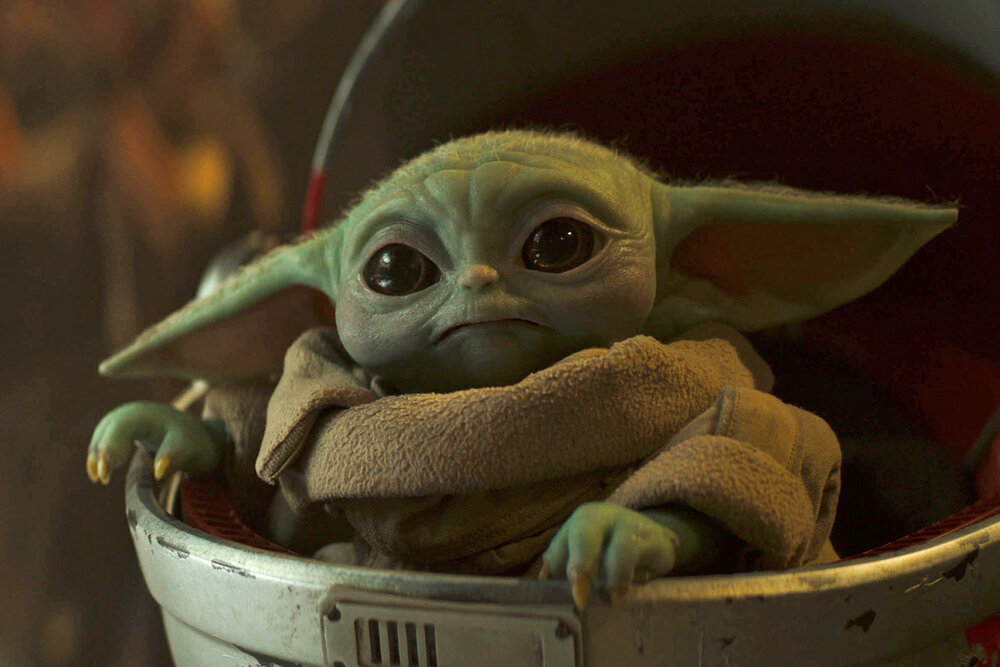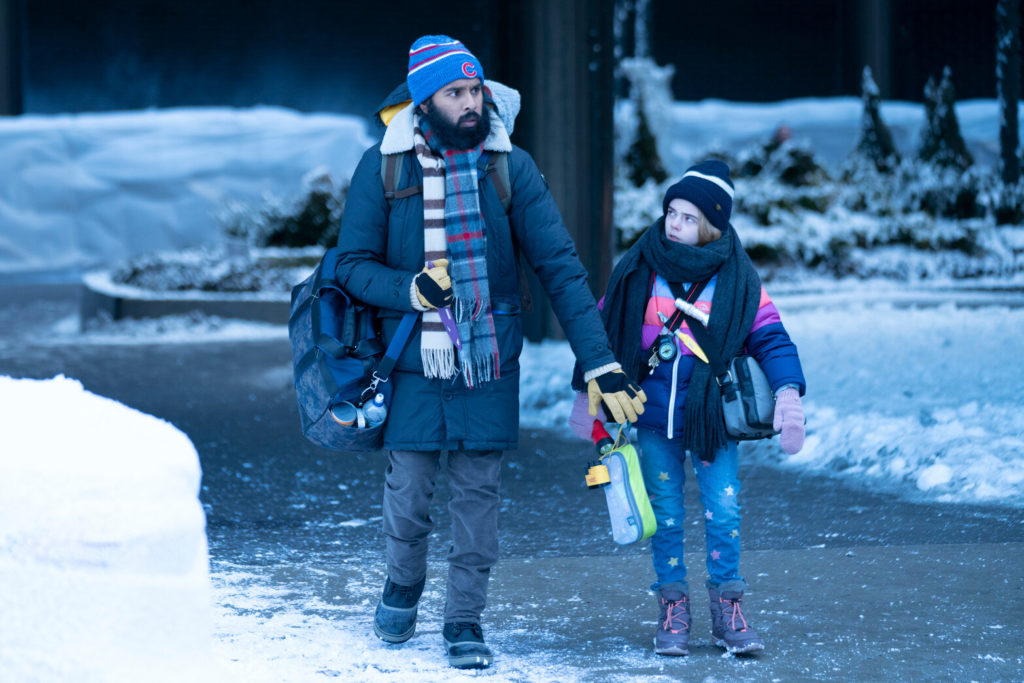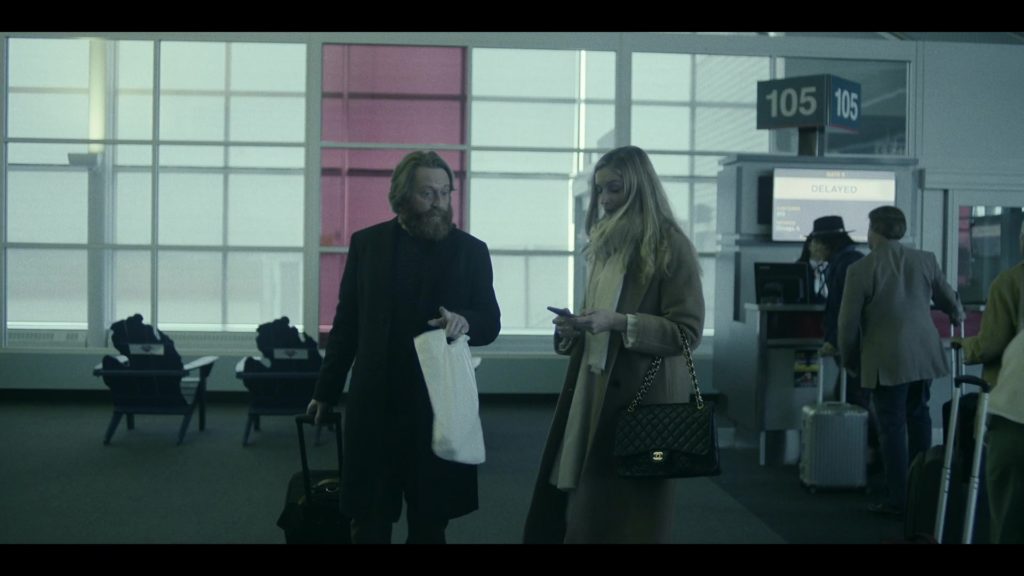
REMINDER: A quick reminder that you have one month left! The month of March on Scriptshadow will be me guiding you through your first act. Which means you still have a month to figure out a great concept. If you’re on the fence and need feedback, I do logline evaluations for $25. You get a 150-300 word analysis, a logline rewrite, and a 1-10 rating. My threshold for whether a concept is “write-worthy” is a 7 out of 10. So you’ll instantly know if you have a keeper on your hands. E-mail me at carsonreeves1@gmail.com if you need help.
Flashbacks.
Around here we call them “flashbads.” Cause it’s never a good time to use flashbacks.
Remind me again why that is, Carson. It’s because movies work best when every scene pushes the story forward. When you’re flashing back, you are obviously violating that rule. I mean, the word “back” is literally inside the word “flashback.” That should tell you everything you need to know.
This topic is all up in my face this year because The Book of Boba Fett is obsessed with flashbacks. The majority of the first four episodes were set in the past.
Now I don’t want to get too sidetracked but since I think it’s part of the larger picture, I’ll bring it up: The Book of Boba Fett is a total mess. The last two episodes have contained three seconds of Boba Fett…… IN A SHOW CALLED ‘THE BOOK OF BOBA FETT!’
There’s clearly something weird going on behind the scenes. I don’t know what it is. But this cannot have been the original plan. My theory is that they didn’t complete the overall set of scripts for The Book of Boba Fett, necessitating that they pull in the first few episodes of Mandalorian Season 3, which had already been shot, and shoehorn them into this show.
The reason I bring this up in relation to today’s article is because the flashback issue in Boba Fett is clearly a symptom of a bigger problem. They didn’t know what to do with this series. They didn’t have a story. And when you don’t have a story, you run in place. Think about it. How can you move your characters forward if you don’t know where they’re going?
That’s when, as writers, we get these ideas that we think are good at the time – “Let’s go back to Boba’s past and see how he got here” – when in reality, we’re procrastinating the story. We’re writing about sh*t that doesn’t matter since it’s set in the past. No matter how much depth it adds to the character, you still haven’t moved the present-day story forward, and that’s caused the audience to get bored.
Which brings me to Station 11.
Station 11 is this weird show on HBO Max. It covers a pandemic that wipes out 99% of the population. And we cut to 20 years later where a traveling Shakespeare Theater Company goes from apocalyptic small town to apocalyptic small town, putting on plays. The central character is a woman named Kirstin, who tends to play the lead character in all their plays.
The structure of Station 11 is a bit schizophrenic. While we do spend a fair amount of time with the Shakespeare Company, we’re constantly flashing back to before the pandemic, to the early days of the pandemic, and to a year after the pandemic.
And we’re doing it with multiple characters. Sometimes we follow Young Kirstin and the man who saved her, Jeevan. Sometimes we’re covering movie star Arthur, a man who died of the virus on day 1 but who’s left a strong influence on many of the other characters, including Kirstin, who was in his play. Sometimes we’re covering headstrong Miranda, who was once married to Arthur, and who has written a graphic novel called “Station 11” that plays into the story in a myriad of ways.
Anyway, something funny happened as I took in the first few episodes of the show. I found that I enjoyed the flashbacks. And not just enjoyed. I looked forward to them! Being a person who loves to deal in absolutes, this blew up my newfound theory that The Book of Boba Fett had enshrined upon my screenwriting coda – that all flashbacks were bad. Obviously, flashbacks could be good. So what was it that Station 11 did that Book of Boba Fett did not?
Before I answer that, let me first acknowledge that when it comes to flashbacks, more so than many other aspects of screenwriting, there is gray area. It’s not always clear why flashbacks don’t work sometimes and do work other times. What I do know, however, is that they usually don’t work. Which is why I advise against using them. But since there are examples of them working, it’s worth figuring out why.
The biggest reason that The Book of Boba Fett flashbacks failed is because they filled in a storyline that was unnecessary to know. There was nothing about Boba Fett being helped by sand people that affected the present day story. It affected a few things about his character, such as the way he fought. It also made him more forgiving and nicer.
But one of the best ways to identify whether a flashback is needed is to ask yourself, “Does the present day story suffer if I get rid of this flashback?” I would argue, 100 times out of 100, that nothing in the present day story changes if you eliminate Boba’s flashbacks. That’s how you know they’re not needed. “Let’s get to know him a little better” is never a good motivation to write flashbacks. Flashbacks need to do more than that to justify their existence.

One of my favorite storylines in Station 11 is the relationship between Young Kirstin and Jeevan. What happens is that Jeevan is at a play right before the pandemic. Spoilers, obviously. In the play, Arthur dies onstage. In the chaos that ensues, Young Kirstin, who has a part in the play, has no one to take her home. So Jeevan reluctantly offers to take her. But when they get to her house, nobody is home. So Jeevan has to take her back to his place. That’s when he gets the phone call about the virus and Jeevan and Young Kirstin get stuck together as the virus cascades over the city.
When we cut to the 20-years-later storyline, we have Kirstin. But we have no Jeevan. And here’s where Station 11 establishes why its flashbacks actually matter. We now want to know what the hell happened to Jeevan. Why is he gone? It’s a mystery. And every time we cut back to Young Kirstin and Jeevan, we get a little more information on what happened to them.
In addition to this, the writers of Station 11 established conflict between Jeevan and Young Kirstin. He’s resentful towards Kirstin. He was supposed to be able to leave her at her home and go. Instead, he’s been made responsible for this girl, which is something he never wished for. So there’s a burden there that creates an ongoing unresolved conflict between the two. And the reason that’s relevant is because conflict is what generates entertainment in scenes. If the two were hunky-dory, their scenes would not be interesting. It’s the fact that he doesn’t want to be responsible for this girl, combined with the fact that he isn’t around in the future, which has us asking, “What happened?” And makes us actually look forward to the flashbacks.
Another big flashback sequence occurs in episode 5. In this flashback, Clark, an actor who used to do stage work with Arthur before Arthur became a movie star, gets stuck at a small airport at the early stages of the pandemic. At first, everyone at the airport thinks it’s your average delay. But, the next thing you know, it’s been five days, and then ten, and then 30. So we watch it play out as the people realize they’re stranded here. This is their new home.

Theoretically, this episode should not work. Up to this point, Clark has been an ancillary character. All of a sudden, he’s getting his own episode. Shouldn’t this fall under the same blanket as the Boba Fett episodes? Will the present day story still work if this flashback is eliminated? It probably would. And yet, this was one of the best episodes of the series. Why?
This is where we enter the gray area of screenwriting theory. The reason this flashback episode works is because it’s a really good story. You’ve got all the ingredients for a good story in place. These people get stuck at the airport. A worldwide pandemic hits in real time. They realize nobody’s coming for them. They have to live there. They have to make rules. There are some people who don’t like the rules so they push back, causing conflict. At a certain point, one of them may be infected. The actions the group takes towards the infected character up the intensity considerably. We’re curious if the airport group is going to make it or if they’ll implode. It’s an interesting story.
In the spirit of debate, I would bet that the writers of Boba Fett would argue that Boba being captured by the sand people was, likewise, a good story. That the viewers would be caught up with what the sand people did to him and how he escaped them. And they’d love the fact that Boba eventually befriended the sand people and they worked together to take on the bad guys who were raiding their land.
This is where storytelling becomes subjective. I thought that storyline was C+ at best. It wasn’t very compelling. We never got to know any of the sand people well enough to care that their land was being stolen. The drama was mild. The plot development was standard stuff we’ve seen a million times before. You never felt like you NEEDED to know what happened next. Whereas, with that airport episode in Station 11, there were several developments (one of which included a plane full of dead infected people) that definitely pushed the plot forward in interesting ways.
That may be what flashbacks come down to. If you can justify a flashback’s existence (it must affect the present-day story in some purposeful way) then it comes down to the exact same challenge you deal with in writing your present-day stuff: Are you telling a good story? The airport story was way more intricate, way better thought-out, and had way better reveals, than the sand people storyline in Boba Fett. So we were more eager to see it through.
But just remember this. While a film or a show can withstand slow scenes here and there, it cannot withstand slow scenes IN ADDITION TO a slog of a flashback story. Which is why it’s so important to scrutinize the addition of flashbacks. A lot of writers just add flashbacks to fill up the time. They don’t add them because they’re essential or because they want to use them to tell a story they can’t tell in the present. And that’s what you need to do to justify your use of flashbacks.
Now some of you might be saying, “But Carson. You’re talking about TV shows here. They have a different set of rules than movies.” That’s true but it’s also false. Let’s be real. TV shows have become long movies in disguise. So they should still operate under that same mantra of: KEEP THE STORY MOVING FORWARD. That’s not to say you can never use flashbacks. But if you do, they better be justified. And they better be damn entertaining.
Anybody else see Station 11? What did you think about the flashbacks?

